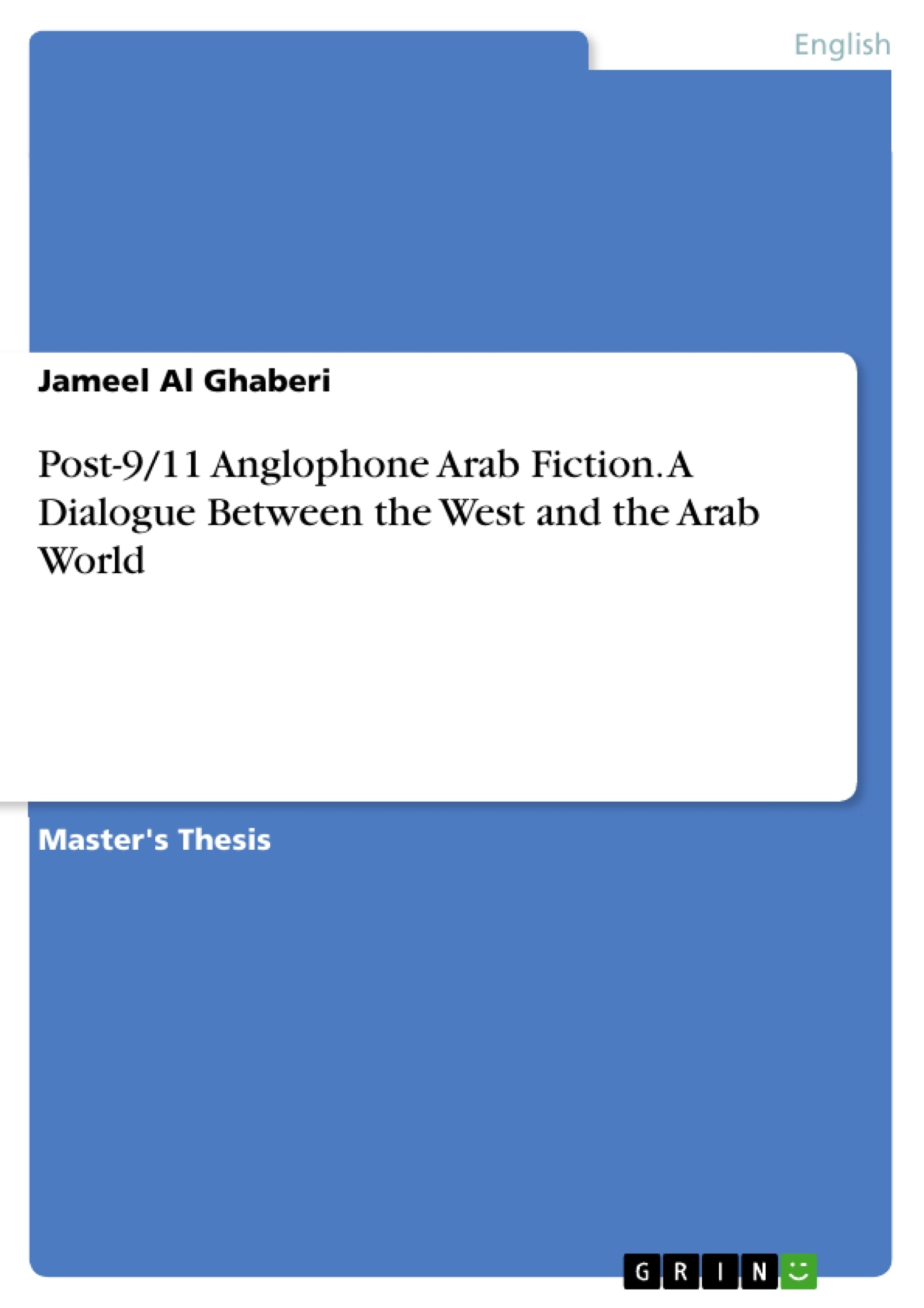This book is about Arab Anglophone fiction produced after 9/11 in the United States. It attempts to analyze how the writers of such a period portray the life of Arab Americans in a post-9/11 America. It shows how Arab Americans dealt with the consequences of 9/11. It reflects several aspects that characterize Arab American writing as a diasporic narrative, such as memory and home, racialization, anti-Arab sentiment and urgency of expression, and how Arab Americans responded to the terrorist attack of 9/11. The study also investigates the role of Anglophone Arab fiction in paving the way for more intercultural understanding and attempting to de-orientalize the Arab. What I found is that some writers often try to negotiate with the American culture in order to arrive at an identity that incorporates multiple elements from both the culture of origin and the host culture. Hybrid and cosmopolitan in their approach, such writers also attempt to be cultural mediators, and they show much concern about subverting the normative judgment and stereotypical image that has fixed the Arab American. Works of fiction produced by Anglophone Arab writers, such as Laila Halaby’s Once in a Promised Land, Rabih Alameddine’s The Hakawati, and Alia Yunis’ The Night Counter represented how Arab Americans faced difficulties after 9/11 in terms of identity construction, cultural identification, and the conflicting sense of belonging and non-belonging. These works genuinely depict the life of Arab Americans and give a better understanding of who Arabs are. They also interlink both the Arab culture and American culture, celebrating both cultural identities.
Inhaltsverzeichnis (Table of Contents)
- Chapter One: Anglophone Arab Fiction
- Introduction
- Memory and Home
- Double-Consciousness and Racialization of Arabs
- Identity and Representational Dilemma
- Chapter Two: Post-9/11 Politics of Writing
- The Realities of Post-9/11 and Anglophone Arab Literary Responses
- Anti-Arab Sentiment and the Urgencies of Expression
- Chapter Three: De-oriantalizing the Arab
- Hybridity and In-Betweenness
- Towards Intercultural Understanding
- Conclusion
Zielsetzung und Themenschwerpunkte (Objectives and Key Themes)
This book examines Anglophone Arab fiction written after 9/11, specifically focusing on how Arab American writers depict the experiences of their community in a post-9/11 United States. It explores the ways in which Arab Americans dealt with the aftermath of the attacks and the resulting social and political climate.
- Diasporic narrative and its elements, such as memory and home, racialization, anti-Arab sentiment, and the urgency of expression.
- Arab American response to the 9/11 terrorist attacks and its impact on identity construction.
- The role of Anglophone Arab fiction in promoting intercultural understanding and deconstructing Orientalist stereotypes.
- The hybrid and cosmopolitan nature of Anglophone Arab literature as a bridge between cultures.
- The challenges and complexities of Arab American identity formation in a post-9/11 context.
Zusammenfassung der Kapitel (Chapter Summaries)
Chapter One explores the complexities of Anglophone Arab fiction, examining the themes of memory and home, racialization, and the challenges of identity formation for Arab Americans. It delves into the concept of double-consciousness and the representational dilemmas faced by these writers.
Chapter Two dives into the political landscape of writing in a post-9/11 world, analyzing the impact of the events of 9/11 on Anglophone Arab writers and their creative responses. It examines the rise of anti-Arab sentiment and the resulting urgency of expression among these writers.
Chapter Three focuses on the process of de-orientalizing the Arab, highlighting the hybridity and in-betweenness of Anglophone Arab literature. It discusses the potential of this genre to foster intercultural understanding and challenge stereotypical representations of Arabs.
Schlüsselwörter (Keywords)
Key themes and concepts explored in this book include Anglophone Arab fiction, post-9/11 literature, Arab American identity, diasporic narrative, hybridity, intercultural understanding, de-orientalization, memory and home, racialization, anti-Arab sentiment, and the urgency of expression.
Frequently Asked Questions
How does post-9/11 fiction depict the life of Arab Americans?
It portrays the challenges of identity construction, the impact of racialization, and the struggle with anti-Arab sentiment in a post-9/11 social and political climate.
What is the role of Anglophone Arab fiction in intercultural understanding?
This literature acts as a cultural bridge, aiming to de-orientalize the image of Arabs and subvert stereotypical representations through nuanced narratives.
What are common themes in diasporic Arab American writing?
Key themes include memory and home, double-consciousness, hybridity, and the conflicting sense of belonging and non-belonging.
Which authors are central to post-9/11 Anglophone Arab fiction?
Prominent writers include Laila Halaby, Rabih Alameddine, and Alia Yunis, who explore Arab American experiences through various literary lenses.
What is meant by "de-orientalizing" in this context?
It refers to the process of challenging and breaking down Western-centric, exoticized, and stereotypical views of Arab culture and people.
- Quote paper
- Jameel Al Ghaberi (Author), 2016, Post-9/11 Anglophone Arab Fiction. A Dialogue Between the West and the Arab World, Munich, GRIN Verlag, https://www.grin.com/document/374707



